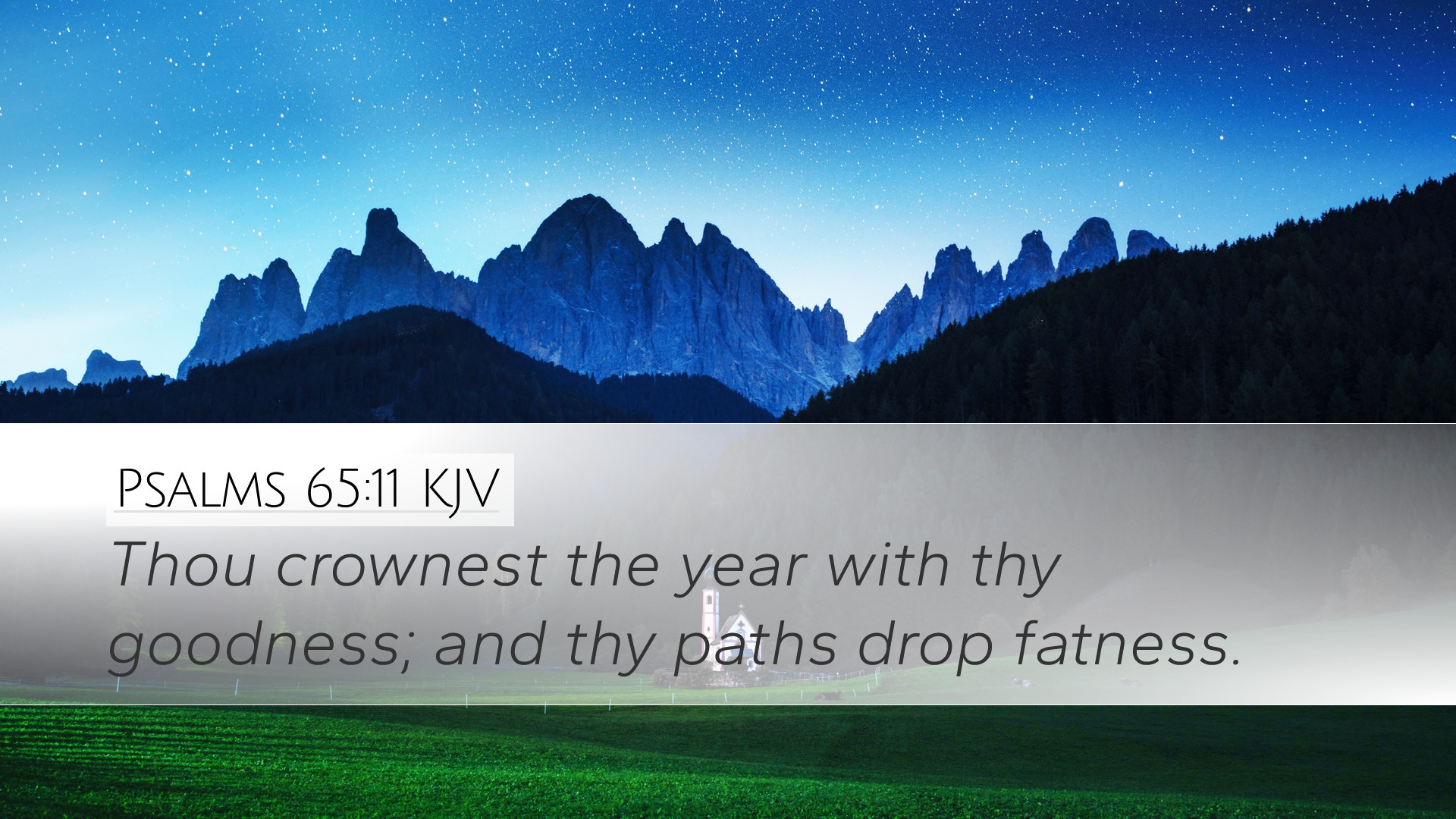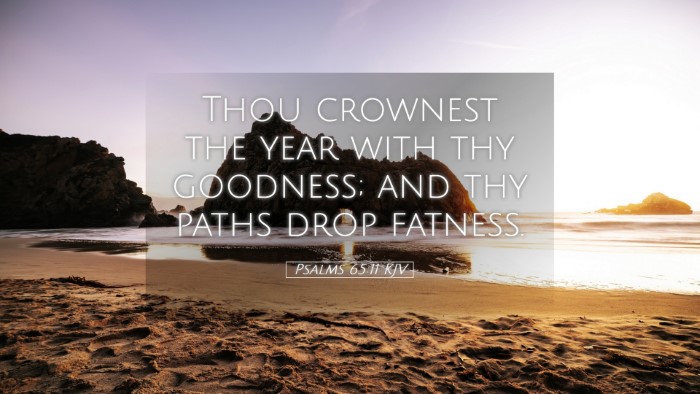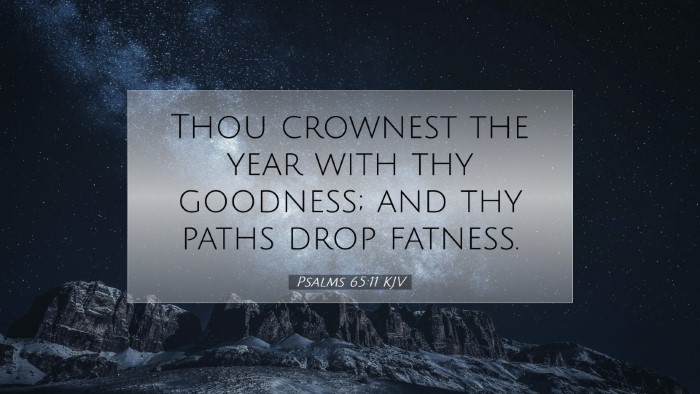Introduction
This verse from the Book of Psalms encapsulates a profound reflection on God's provision and blessings throughout the year. It expresses gratitude for God's faithfulness, illustrating a connection between His goodness and the bounty of nature. In this commentary, we will explore various public domain insights from esteemed Bible commentators such as Matthew Henry, Albert Barnes, and Adam Clarke to deepen understanding of this rich verse.
Commentary Insights
1. Matthew Henry's Perspective
Matthew Henry emphasizes the divine nature of God’s blessings, asserting that the "crown" symbolizes the completion and perfection of the year through God’s goodness. He suggests that just as a crown adorns a king, God's goodness adorns the passage of time, bestowing joy and satisfaction. Henry highlights the notion that every season bears fruitfulness, and God’s provisions are available to all of His creation.
Divine Provision
Henry notes that God's goodness nourishes both the land and the heart. The phrase "drop fatness" indicates an outpouring of abundance, implying that God's paths are characterized by richness. This evokes the imagery of lush fields and overflowing blessings, reinforcing the idea that divine grace leads to physical and spiritual flourishing.
2. Albert Barnes' Interpretation
Albert Barnes focuses on the practical implications of the verse, suggesting that the "crown" of goodness serves as a reminder of God’s favor and the plentiful harvest He provides. Barnes indicates that every aspect of creation is imbued with the goodness of God, ensuring that, irrespective of circumstances, believers can find comfort and encouragement.
Emphasis on Divine Order
Barnes highlights the importance of divine paths, suggesting that God's ways are paths of prosperity and fatness. He encourages believers to follow these paths, assuring them of God’s blessing in every step taken in faith. The paths dropping fatness symbolize an abundance that reflects God's character and the expectations He sets for those who trust in Him.
3. Adam Clarke's Commentary
Adam Clarke underscores the annual cycle of nature as a testament to God’s creativity and generosity. He interprets the "crown" metaphorically, suggesting that it represents the unique blessings that God bestows upon His people, enabling them to thrive and rejoice in His creation.
Spiritual Reflection
Clarke argues that this verse calls for introspection among believers, prompting them to recognize and appreciate the myriad of ways God has enriched their lives throughout the year. He urges that just as nature exhibits cycles of renewal and growth, so too should believers experience continual spiritual renewal through gratitude and worship.
Theological Implications
The theological richness of Psalms 65:11 speaks volumes regarding God's character as a benevolent provider. For pastors and theologians, this verse can serve as a powerful reminder of God's goodness that transcends circumstances and seasons. The notion of God's paths dropping fatness encourages believers to reflect on their journey, recognizing that it is through His grace that they experience abundance.
- Covenantal Faithfulness: This verse reinforces the idea of God’s commitment to His creation and His people, resembling the covenantal blessings portrayed throughout the Scriptures.
- Ecological Stewardship: The imagery presented implies that humanity has a role in caring for God's creation. Acknowledging His goodness prompts a responsible stewardship in line with divine intention.
- Gratitude and Worship: A response to God's goodness is essential. This verse calls for continual worship and thankfulness, encouraging believers to acknowledge His blessings both publicly and privately.
Conclusion
Psalms 65:11 is a rich verse that encapsulates the essence of God’s provision and grace. By examining the combined insights of Matthew Henry, Albert Barnes, and Adam Clarke, we see a multifaceted view of this spiritual truth. For pastors, students, and theologians, this verse serves as both an encouragement and a clarion call to recognize and celebrate God's abundant goodness throughout all seasons. As believers reflect on this verse, they are invited to deepen their understanding of God’s nature and their relationship with Him, leading to a life marked by gratitude and faithfulness.


